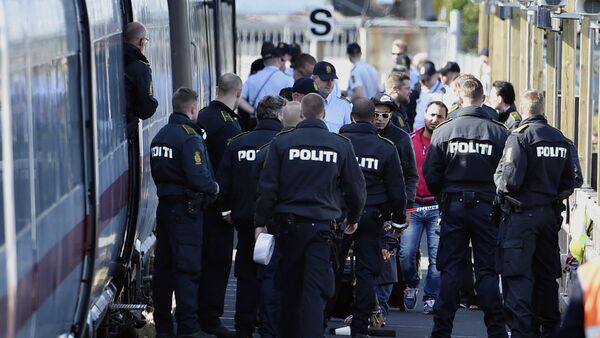"The Experiment That Failed," a new book by Mikkel Andersson and Niels Jespersen, casts a critical light on the challenges posed by Denmark's immigration policy of recent decades.
In 1983, there were about 60,000 non-Western immigrants in Denmark. By 2018, their number has risen to almost 500,000 in a nation of 5.6 million. According to the authors, the mass immigration of refugees and economic migrants has left a deep mark on Danish society, and its economic, social and cultural influence has been mostly negative.
The consequences of immigration can be seen and experienced on a daily basis and have become part of the media landscape, the authors claim, focusing on disaffected youths terrorizing neighbourhoods around the country with threats and violence, gangs wars, police who are unable to fund despite extra manpower and resources, and parallel communities where extremist and oppressive beliefs are nurtured.
READ MORE: Researcher Blames Migration as Sweden Hits Europe's Lowest GDP Growth Per Capita
Economically, non-Western immigrants cost the Danish state coffers a whopping DKK 30 billion ($4.5 billion) per year, a bill that is unlikely to disappear in decades to come.
Mikkel Andersson and Niels Jespersen conclude that immigration has made Denmark a poorer, less secure and more polarized country. Against this backdrop, they conclude that the asylum policy of recent years hasn't only been harmful to Denmark, ironically enough, it's harmful for the refugees who deserved real help.
"Denmark helps a small number of able asylum seekers who have the power and money to travel through six-eight secure countries while failing a larger number of those who do not have the resources, but could have received much better assistance for the same money," as Mikkel Andersson put it, according to the daily newspaper Berlingske.
Så kom der bog fra trykken!
— Mikkel Andersson (@AnderssonMikkel) 30 октября 2018 г.
Udkommer den 14/11: https://t.co/88w9HKe7e7 pic.twitter.com/QKhkeKrLUg
According to the authors, this is not an exclusively Danish phenomenon, but instead encompasses Germany, the Benelux countries and the rest of Scandinavia, among others. Jespersen argued that the mistake was believing that you could take in hundreds of thousands of people with a different culture and background and expect them to integrate and look similar to the majority population. By contrast, the Visegrad countries, Poland, Hungary, the Czech Republic and Slovakia, have refused to condone mass immigration despite pressure from Brussels and Berlin.
READ MORE: Denmark Will Cease to Be Lutheran by 2050 With Current Migration — Sociologist
According to Berlingske, both authors have roots in the far left. Over time, however, both have moved towards the political centre. Niels Jespersen is a Social Democrat and Mikkel Andersson defined himself as "bourgeois freethinker" and "classical liberal".




